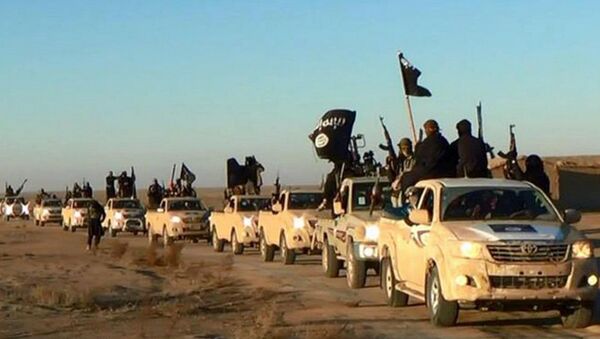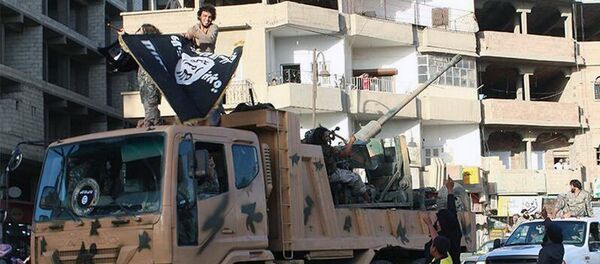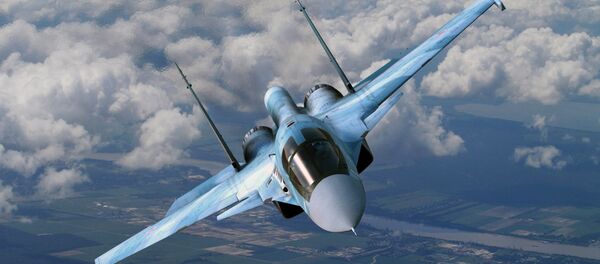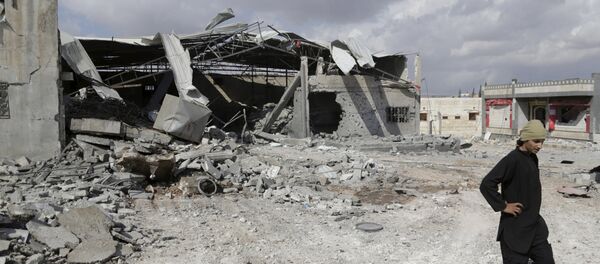As IS militants fight on multiple fronts, it receives funding from its control over both oilfields and refineries. By some estimates, the terrorist organization manages to produce between 34,000 and 40,000 barrels of crude per day.
That means IS is earning roughly $1.5 million each day.
With that kind of influence over the region’s oil market, it becomes almost impossible for local businesses, individuals, and even rival rebel groups, to avoid doing business with the Islamic State.
"It’s a situation that makes you laugh and cry," one Syrian rebel commander told the Financial Times. His group buys oil from IS even as they fight for control over the outskirts of Aleppo.
"But we have no other choice, and we are a poor man’s revolution. Is anyone else offering to give us fuel?"
Oil is precisely why IS moved to take control of eastern Syria in 2013, sight of the al-Jabsah and al-Omar oilfields. As the Islamic State pushed toward Mosul, it secured fields across northern Iraq.
"They brought hundreds of trucks in from Kirkuk and Mosul and they started to extract the oil and export," a local sheikh who lives near Kirkuk told FT.
While IS only managed to hold onto the Iraqi fields for ten months, it extracted an estimated $450 million worth of oil.
While selling the fuel in the global market would prove virtually impossible for the terrorist group, it doesn’t have to worry about exports. Controlling the means and production within its own territory, even those fervently opposed to IS ideology have no choice.
"At any moment, the diesel can be cut," an oil trader from Aleppo told FT. "No diesel – [IS] knows our life is completely dead."
With demand high, local traders sit through month-long waits. Parking tankers in lines that can stretch nearly 4 miles long, they receive a ticket number from the Islamic State and patiently wait their turn.
Recognizing the necessity of its oil production, the group even scouts for promising talent. A number of Syrians have testified to being approached by IS members. Offering a competitive salary, the group seeks to recruit capable engineers and technicians, and even grants special authority to individuals who have experience working at oil companies abroad.
"Everyone here needs diesel: for water, for farming, for hospitals, for offices," a Syrian businessman told FT. "If diesel is cut off, there is no life here."
Western intelligence has known about the terrorist organization's reliance on oil reserves for years. But despite this knowledge, the US-led coalition has shown surprisingly little interest in targeting the infrastructure required for that production.
Of the 10,600 coalition airstrikes conducted since August of 2014, fewer than 200 have targeted the Islamic State’s oil facilities.
Russian intervention may change this. Hundreds of airstrikes have been carried out since the bombing campaign began on September 30. Last Wednesday, Syria’s Ambassador to Russia estimated that roughly 40% of the terrorist group’s infrastructure had been destroyed.







